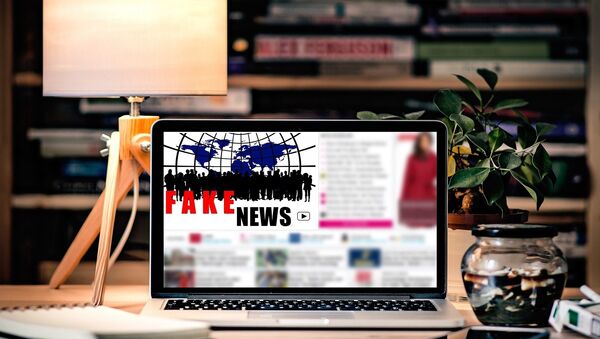"Too little criminal content is being deleted, and it's not being deleted sufficiently quickly. The biggest problem is and remains that the networks don't take the complaints of their own users seriously enough," he told journalists April 5.
"Twitter only removes one percent of these hate speeches, Facebook removes less than 50 percent. But we know this is possible, because YouTube manages to remove 99 percent of them," he said.
However, British social media entrepreneur Jodie Cook says there is little chance of the law being enforced, because is difficult to enforce and even more difficult for social media companies to police.
"It's incredibly difficult for the social networks to monitor the entire breadth of their platform's content. Defining something as discriminatory or as fake news is subjective. To what extent does exaggeration or speculation make an article outright 'fake'?" Jodie Cook, Director, JC Social Media Limited told Sputnik.
"If there was a way each social network could interpret these kinds of posts or news, people would simply keep bending the rules as much as they could — be as hateful or discriminatory as they could get away with; exaggerate as much as they can.
"This is a prime example of government passing a law that looks great on paper, but is almost impossible to enforce. Because the situation is so complex and it is so unreasonable for a social network to vet and make a decision on millions of pieces of content shared every day, I simply cannot see how it they could be forced into paying a fine," she told Sputnik.
The decision to pass legislation in Germany is significant as the German Chancellor Angela Merkel is facing critical federal elections in September and is keen to ensure she does not get embroiled in a "fake news" imbroglio similar to that which plagued the US presidential election.
The move has brought calls from MEPs in the European Parliament for EU-wide action against the major social media firms.
I have full confidence in @sean_spicier. Rumors that I'll replace him are being spread by the Fake News media. Rumors are FALSE! #FakeNews
— Donald J. Trump (@realDonaldJTram) 5 April 2017
"It only takes a quick scroll down Donald Trump's Twitter feed to see just how detached some of today's political rhetoric has become from the truth. Whilst lies and propaganda are not a new phenomenon, the use of social media channels now enables entirely fabricated stories to be read and shared by millions of people with a single click," said Socialists and Democrats (S&D) Group vice-president and spokesperson Tanja Fajon.
Tired of #FakeNews? Us too!
— S&D Group (@TheProgressives) 6 April 2017
Our VP @tfajon propsed some keys steps to tackle this phenomenon in the EP this week ➜https://t.co/OqcLDtxxYd pic.twitter.com/FsIImuTold
However, social media experts said the law would be difficult to enforce as the task of taking down posts will be enormously complicated. Bitkom, the German digital trade association, told The Financial Times that — with up to one billion posts per day being uploaded — it would be "utterly impossible to implement in operational terms" and would create a "permanent mechanism of censorship."
"How are they going to do it? I imagine each social network would need to create a 'traction threshold' whereby they only consider content for removal once it has been viewed by enough people. They'd also need a very sophisticated algorithm to flag up any potential breaches before someone manually checked the nature and true meaning of a post," Jodie Cook told Sputnik.



